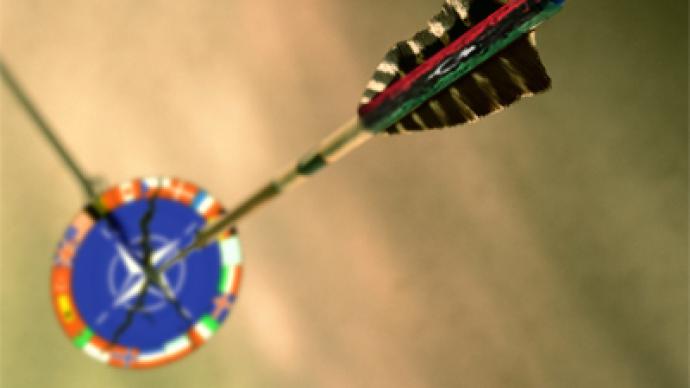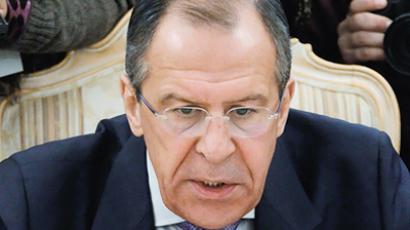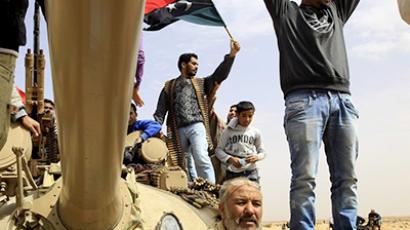NATO states divided over Libya

Recent civilian casualties in Libya are causing a rift between NATO member states. Italy has called for an immediate halt to the violence in order to allow humanitarian aid into the country, a move which France opposes.
Italian foreign minister Franco Frattini announced on Wednesday that it is essential to halt hostilities in Libya in order to bring aid to the country. "We have seen the effects of the crisis and therefore also of NATO action, not only in eastern and south-western regions but also in Tripoli," Frattini said. "I believe an immediate humanitarian suspension of hostilities is required in order to create effective humanitarian corridors," he added. The Italian FM observed that, in the meantime, negotiators should continue to consider a more formal ceasefire and peace talks. However, despite the call from Italy, French officials insist that the UN-sponsored military campaign against Gaddafi should be further intensified. "Any pause in operations would risk allowing him to play for time and to reorganize,” French Foreign Ministry spokesman Bernard Valero told reporters.The sentiment was shared by the British prime minister David Cameron, who said that any temporary ceasefire must not allow Gaddafi forces to launch new offences, AP reports. NATO chief Anders Fogh Rasmussen announced later on Wednesday that the NATO operation in Libya is due to continue. "NATO will continue this mission because if we stop, countless more civilians could lose their lives," he said, expressing regret at the lives lost in the conflict.NATO is acting under a UN resolution to protect civilians, but many believe the alliance’s main aim has always been to oust Colonel Gaddafi.Some European politicians from countries backing the campaign say that it is not NATO’s job to decide, it is down to the Libyan people. “The British public don’t really understand why we’ve been taken into these wars. Yes, indeed why are we bombing?” says Gerard Batten, MEP from the UK Independence Party. “Colonel Gaddafi is a murderous vicious dictator in the world, and Libya will be better off without him, but is it our business to go in there and bomb him out of office? If the Libyans want to have a revolution and get rid of him, then good luck to them.”Others believe that the longer the attacks on Libya continue, the more difficulties for NATO and its political backers.“The only exit of NATO was to say ‘we will leave when Colonel Gaddafi leaves,’” thinks Claude Moniquet from the European Strategic Intelligence and Security Center in Brussels. “ If Colonel Gaddafi is killed or leaves power on his own, NATO will have an option to exit, but if not – the point is they will have to exit without achieving anything which will be politically disastrous for NATO and especially for London and for Paris”.Civilian deaths in Libya are at last making news on western news networks.The operation in Libya has been going on for three months and according to Libyan officials, hundreds of civilians have already been killed by NATO bombs.So, why has it taken so long for the major TV networks and newspapers to report on the carnage?“Because the big problem with our media, our mass media nowadays, is not they are left-wing or right-wing, it’s just that they go along with whomever is in power, “believes an international consultant and former Deputy Speaker of the Belgian parliament Lode Vanoost. “ And the whole idea of critical reporting is gone” NATO’s admission of killing civilians in recent days may have made the headlines back home, but the expressions of regret have not been felt on the ground in Libya, unlike the western bombs and missiles which continue to fall, killing those the alliance says it is there to protect.
According to investigative journalist and author Michel Collon, history shows that the US-led alliance is not going to leave Libya without international pressure.“If you look at Afghanistan to compare, everybody knows, including in the USA, that the war is lost,” he said. “The minister Holbrooke, who recently died, said the war is lost and we have to get out, but Obama will not get out of Afghanistan because if they get out this means that the USA is not able to win a war, is not able to impose its rule over the world.””I think only if there is international pressure, like it was on Vietnam, then the US alliance will leave,” Collon added.














